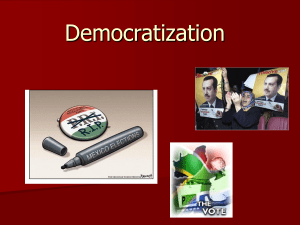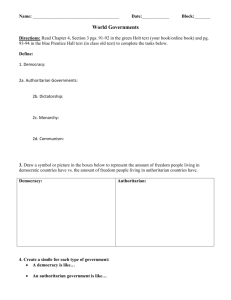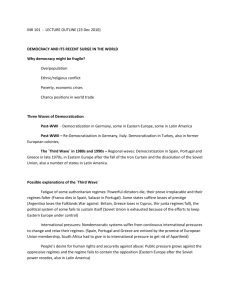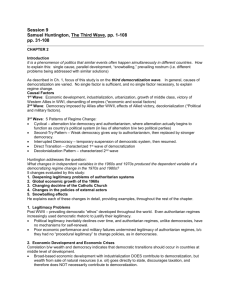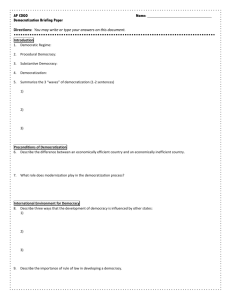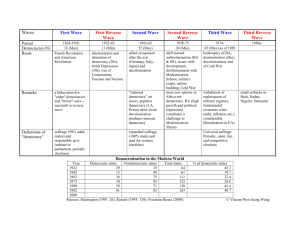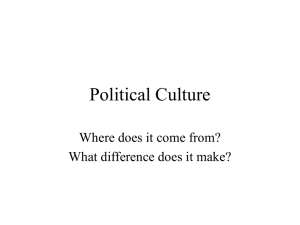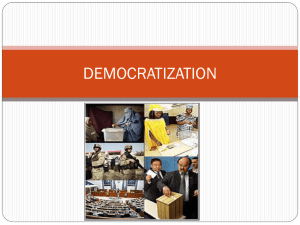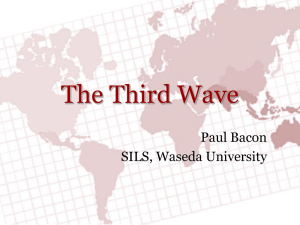Democratization in Asia
advertisement
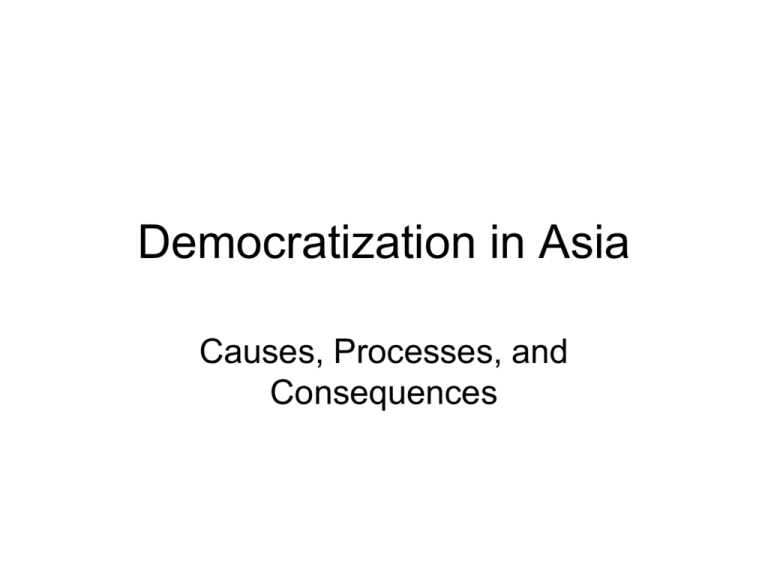
Democratization in Asia Causes, Processes, and Consequences Outline • 3rd wave of democratization • Causes – economic – cultural • Processes • Consequences – economy – security Waves of Democratization • ``A group of transitions from nondemocratic to democratic regimes that occur within a specified period of time and that significantly outnumber transitions in the opposite direction during that period” The First Two Waves • A long and slow wave from 1828 to 1926 • A reverse wave of democratic breakdown from 1922 to 1942 • A wave of democratization after World War II from 1943 to 1964 • A reverse wave of democratic breakdown from 1961 to 1975 The Third Wave • Started in Portugal and Spain in mid1970s • Spread to South America from late 1970s to early 1980s • Reached Asia in late 1980s • Surge of transitions in East Europe at end of 1980s • South Africa 1990 The Third Wave Causes of Regime Change CAUSES OF CRISES Structural variables Procedural variables Internal variables economic development social cleavages institutions etc. international competition military threat etc. political leadership strategic efforts etc. External variables foreign policy choice by major states and institutions, etc. Economic Explanation? • Almost all rich countries have democratic institutions Economic Variable • • • • • Economic development dispersion of resources economic pluralism social pluralism political pluralism Economic Variable • • • • • Economic development middle class demand for democracy elite bargaining political accommodation Economic Variable • • • • • Economic development rising expectations economic difficulties popular discontent regime crises Cultural Explanation? • Are Islam and the ``Asian values” obstacles to democracy? Support for Democracy • World Values Surveys and European Values Surveys • The following slide shows the percentage of respondents who said a democratic system is a ``very good” or ``fairly good” way of governing this country • Most Islamic and Pacific Asian countries actually rank relatively high Support for Strong Leader • The following slide shows the percentage of respondents who said ``having a strong leader who does not have to bother with parliament and elections” would be ``very good” or ``fairly good” • Most Islamic and Pacific Asian countries actually have relatively low support for this authoritarian option Scenarios of Change • Preservation of authoritarian regime • Gradual transition to – authoritarian pluralism • Gradual and moderate liberalization • Gradual and moderate democratization • Radical transition toward – a new authoritarian regime – a democracy Regime Changes Non-democracy Preservation State Crises Democracy Regime Change Democracy Non-democracy Top-down Processes • From top down – Conflict of interest – Elite competition – Gradual transition • Problematic implications: – democratization is easy – skillful elite can establish democracy in any setting Bottom-up Processes • From bottom up – Popular demand – Political movement – Radical revolution Consequences • Does democracy promote economic growth? • Does democracy promote security?
